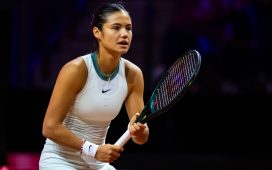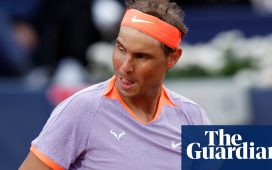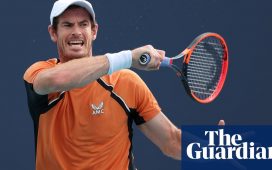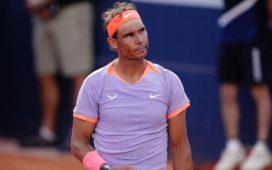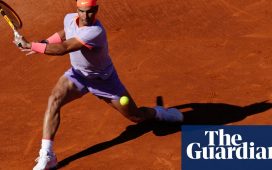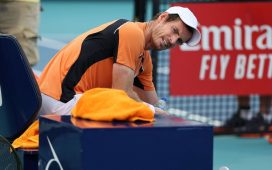But the leadership of the ATP, including its player council, which includes stars like Roger Federer and Rafael Nadal, ultimately decided that it was important to take a strong stand against the ban on individual players in order to dissuade tournaments from barring players — now or in the future — based on political concerns.
“How do you draw the line of when you ban players and when you don’t?” Yevgeny Kafelnikov, a Russian and a former No. 1 singles player, said in a telephone interview from Moscow.
Unlike Wimbledon, the lead-in events in Britain have not been stripped of ranking points despite being formally part of the tours. Wimbledon, as a Grand Slam event, operates independently but does have agreements with the tours on many levels, including ranking points. But the ATP and WTA chose not to strip points from the British lead-in events because other tournaments located on the European continent were still open to Russian and Belarusian players during those three weeks of the grasscourt season. The WTA did announce that it was putting the British tour events in Nottingham, Birmingham and Eastbourne on probation because of the ban.
There was also the concern that without ranking points on offer, players would choose to withdraw from the British grasscourt tournaments. Wimbledon, with its huge prize money and prestige, is unlikely to experience such withdrawals even without points but there could still be some attrition.
Russia-Ukraine War: Key Developments
Russia’s punishment of Finland. Russia will cut natural gas supplies to Finland on May 21, according to Finland’s state energy provider. Russia said that it was suspending the supply because Finland had failed to comply with its demand to make payments in rubles. Finland has also submitted an application to join NATO, angering Russia.
Wimbledon had come under pressure from the British government to act. The tournament opted for a ban after rejecting the government’s suggestion that Russian and Belarusian players provide “written declarations” that they were not representing their countries; that they were not receiving state funding or sponsorship from companies with strong links to the Russian state; and that they had not and would not express support for the invasion of Ukraine or their countries’ leadership. There was above all concern that signing such a declaration could put players or their families at risk and also concern that the option would not be available to all Russian and Belarusian competitors. Junior players, for example, are routinely funded by the Russian and Belarusian tennis federations and would thus have been unlikely to be eligible to sign.
But in announcing bans on individual athletes, Wimbledon and the British grass-court events remain outliers. No other tour event has followed their lead. Russian and Belarusian players, including the men’s No. 2, Daniil Medvedev of Russia, and the women’s No. 7, Aryna Sabalenka of Belarus, are set to take part in the French Open, the next Grand Slam tournament on the schedule, when it starts on Sunday.
After the war in Ukraine began in February, professional tennis moved quickly to bar Russia and Belarus from team events such as the Davis Cup and Billie Jean King Cup, both of which were won by Russia in 2021. The tours and the International Tennis Federation also canceled tournaments scheduled to be played in Russia and Belarus later this year, including the Kremlin Cup in Moscow. The I.T.F. suspended the countries’ tennis federations from its membership as well.


